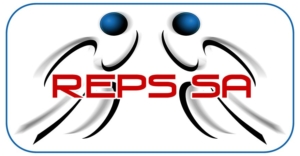
Actress, adventurer, athlete and goodwill ambassador Hlubi Mboya-Arnold does it all. Driven by a desire for self-mastery and constant improvement, Hlubi actively seeks opportunities to challenge herself and step out of her comfort zone.
Whether that’s stepping onto the competitive Bikini stage, climbing Mt. Kilimanjaro or riding the world’s toughest mountain bike stage race, the Absa Cape Epic, Hlubi revels in the thrill of venturing into the unknown – constantly taking on new adventures and challenges is what gets her through her training every day.
But it’s more than just her drive and commitment that makes Hlubi a fitness role model of the highest calibre. She achieves all this despite her hectic schedule, where she juggles her career in the deadline-driven media industry, while still finding time to pursue her passion for social entrepreneurship and community upliftment.
It’s a demanding lifestyle that Hlubi masters with rigorous physical and mental preparation. And when there’s an opportunity to combine the two, Hlubi doesn’t hesitate to exploit it. That’s why she has aligned her personal brand with South Africa’s premier provider of fitness education – the HFPA Fitness Academy
Developing Body and Mind
“I got involved with HFPA because I wanted to be something more than just a sports and fitness lover. I’ve always been serious about the things I love most in life, which is why I wanted to take my passion for health and fitness to a new level. I wanted to dig deeper and discover more, and education creates opportunities to do that.”
Beyond simply satisfying her curiosity and quenching her desire for personal growth, Hlubi also felt it was important to formalise her education as a brand ambassador and fitfluencer.
“I work hard to be a credible role model, particularly to young black girls. I want to show them that they can break the mould and do things differently. And by broadening my competencies through on-going education, I can empower others with the information I share. There is so much poor, unqualified advice out there on social media, which is why I want to make sure I can cut through the clutter and add value in others’ lives.”
https://www.instagram.com/p/BuJj4kEBaFc/?utm_source=ig_embed
Aligning values
Hlubi says her decision to align with HFPA was an easy one based on the brand’s reputation and the recommendations she received from her friends and colleagues in the health and fitness industry.
“HFPA offers diversity in their subject matter and courses, and are also inclusive, catering to every sector of the industry and society. These are values that resonate with me.”
And the HFPA team also recognised the similarities, which prompted the them to sign up Hlubi as a brand ambassador.
https://www.instagram.com/p/By7ePx6Fikh/?utm_source=ig_embedhttps://
“HFPA lets me be authentic about my passion for sport and fitness, which is important because going by the book bores me. I’m all about energy, which aligns with HFPA’s culture. The brand also embodies the values of balance and constant progress, which is what I strive for every day.”
Lean, mean learning machine
This association has given Hlubi unfettered access to HFPA’s rich resources, which she plans to utilise to its full potential.
“I love HFPA’s learning environment – it’s open and dynamic. It’s also innovative, offering full-time and distance learning options with workshop study modes available, which makes it accessible nationwide. The lecturers always advance their knowledge to stay with the times, while the course work keeps step with new industry trends and developments. And their qualifications are also internationally recognised!”
This dynamic caters to everyone, from the mom and entrepreneur to the passionate fitness fanatic and someone who is looking to build a career in the industry. It’s also a great platform to grow your network, believes Hlubi.
“I’ve aways said your network is your net worth. Studying at HFPA has helped me build relationships and gain access to an international network of potential opportunities. It’s the type of platform that tears down the barriers many South Africans face when trying to gain access to people and places.”
https://https://www.instagram.com/p/BlAV0YxBRqQ/?utm_source=ig_embed
Get paid for following your passion
Since obtaining her qualifications – with more to come – Hlubi believes she can now walk the talk.
“I now know what it means to love something and be a professional and expert in it at the same time. I believe my qualifications as a personal fitness trainer, and a kids development, sports conditioning and a life coach enable me to apply core skills to various areas of my life. I now view these certifications as assets I can use to make myself a better human being and benefit society.”
In the context of her life, Hlubi plans to expand her knowledge base for her own benefit by obtaining additional qualifications, like a pre and post natal exercise course.
“I believe this provides invaluable knowledge to women who should always feel empowered, not afraid of a natural process like child birth and motherhood due to a lack of understanding or knowledge – gaining knowledge is the most powerful form of empowerment.”
And adding to her list of qualifications also creates new opportunities for Hlubi to pursue divergent career paths.
“I firmly believe that to truly be successful, your career should reflect your greatest passions in life, and that if you’re passionate about something you should pursue every opportunity to get paid for it. When it comes to the health and fitness industry, institutions like HFPA offer the best starting point to realise that ambition.”
Author: Pedro van Gaalen

 With the amount of new information that scientists unearth on a daily basis, coupled with the ever changing techniques being used to build muscle, burn fat, improve fitness and shape physiques, it is essential for fitness professionals in the industry to stay up to date with the latest trends.
With the amount of new information that scientists unearth on a daily basis, coupled with the ever changing techniques being used to build muscle, burn fat, improve fitness and shape physiques, it is essential for fitness professionals in the industry to stay up to date with the latest trends.
